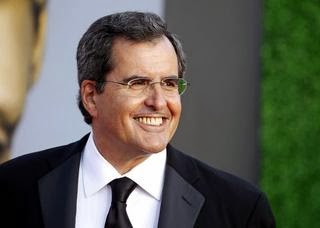Posts
- Get link
- X
- Other Apps

'The Wind Rises': the beauty and controversy of Miyazaki's final film The World War II biopic sparks an animated debate By Sam Byford Hayao Miyazaki's The Wind Rises is a lot of things. It's the final feature-length film from one of the all-time greats of Japanese animation. It's a gorgeous, Oscar-nominated work that brings prewar Japan to life in ways that have never been seen before. It's Miyazaki's most pointedly adult movie, with a slow-burning tragedy replacing the magical realism and cute characters that have made Studio Ghibli's films appeal across generations. And it's the most controversial animated movie in recent memory. That's because The Wind Rises is a sympathetic biography of a man whose work contributed to Japan's brutal campaign of imperialist aggression during World War II. Jiro Horikoshi designed the Mitsubishi A6M Zero fighter plane that Japan used in Pearl Harbor and countless other assaults; the Zero was fear...
Al Jazeera's The Stream: "Single in Japan" with Roland Kelts
- Get link
- X
- Other Apps
Hollywood invests in anime and Asian Pop Culture, for Nikkei Asian Review
- Get link
- X
- Other Apps

Big investment means silver lining for Asian pop culture abroad [Story first published in The Nikkei Asian Review ] ROLAND KELTS, Contributing writer NEW YORK -- 2013 went out with a bang for fans and creators of Asian pop culture, and the reverberations are being felt on both sides of the Pacific. In December, the deep-pocketed Chernin Group, founded by veteran Hollywood mogul Peter Chernin, announced it had taken a majority stake in San Francisco-based Crunchyroll, the world’s leading anime and Asian pop culture streaming website. Peter Chernin Crunchyroll offers free and paid content from Japan and South Korea, including TV dramas, anime series and digital manga, alongside subscriber-only interactive features such as chat rooms, forums and daily discounts on pop-related merchandise. With an investment estimated at just under $100 million, Chernin Group placed a meaty bet on what its president, Jesse Jacobs, calls ...
What to sell; what to eat? On food from Fukushima for SmartPlanet / CBS
- Get link
- X
- Other Apps
Scientists say Fukushima's food is safe. So why aren't the Japanese eating it? Since the nuclear meltdown, the region’s seafood and agriculture industries have suffered -- largely because of mistrust of the government. By Roland Kelts TOKYO -- After Fukushima suffered the world’s worst nuclear meltdown since Chernobyl nearly three years ago, Japanese government officials say the region's food is safe to eat. Problem is, neither its producers nor consumers trust them anymore. Irradiated "ton packs" roadside in Date. [photo by Nathalie-Kyoko Stucky] While not quite the proverbial breadbasket of Japan, Fukushima was, for a long time, home to the nation’s fourth-largest farming area and has long supported itself through the production of rice, fruits, vegetables, tobacco and silk, in addition to a hefty supply of fish and seafood fetched from its 100-mile coastline.
